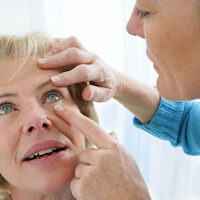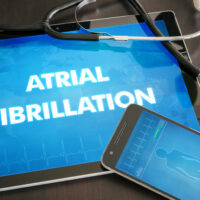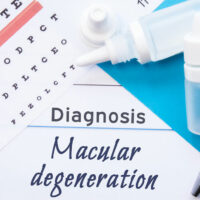6 Warning Signs of Dementia that Cannot be Ignored

Dementia is a progressive disease that often begins with subtle changes in memory, mood, and behavior but can quickly lead to a loss of independence and cognitive function. In the following article, we will discuss six red flags that indicate the presence of dementia that one should not ignore and avoid in the future. Identifying the early warning signs of dementia is crucial to receiving an appropriate diagnosis and treatment.
Warning signs of dementia
Memory loss
It is one of the commonly known signs of dementia. If your loved one seems to be forgetting important details about themselves, their family, or life events, it could indicate dementia.
While everyone experiences some degree of forgetfulness as they age, significant memory loss that disrupts daily life is a red flag. They might forget recent events or conversations, repeat themselves frequently, and rely heavily on notes or reminders to remember basic tasks.
In some cases, individuals with dementia might also forget important dates like birthdays or anniversaries or lose track of the season or year. If you notice your loved one is struggling to remember information that was previously easy to recall, it may be time to talk to a healthcare professional.
Difficulty with everyday tasks
Another alarming sign of dementia is difficulty with everyday tasks. Individuals with dementia may struggle with simple tasks such as dressing themselves, grooming, and even basic hygiene routines like bathing or brushing their teeth. This can be caused by forgetfulness, confusion, and lack of focus.
Another task that can become challenging for those with dementia is preparing meals or handling money. This may result in forgetting to turn off the stove or leaving food uncooked, leading to safety concerns. They may also struggle with handling money, paying bills, or remembering how to operate household appliances.
Sometimes, people with dementia may have difficulty finding their way around their homes or community, which can cause them to feel lost or disoriented. This is due to their impaired spatial awareness and memory.
Attention to these signs is crucial as they impact an individual’s ability to live independently. Caregivers and family members can assist in helping the individual maintain their independence for as long as possible. This may involve creating a structured routine and breaking down tasks into manageable steps.
Disorientation and confusion
Dementia can cause disorientation and confusion, which are concerning symptoms. People may become disoriented in familiar places, forget the purpose of objects or activities, and have difficulty keeping track of time and dates.
As the condition progresses, individuals may experience confusion about their identity, recognizing their loved ones, and remembering where they live. They may also become agitated, anxious, or distressed when they cannot orient themselves in their surroundings.
If someone you know is experiencing disorientation and confusion regularly, it’s crucial to seek medical advice as soon as possible. An experienced physician can help diagnose the cause of these symptoms and provide appropriate treatment and support to help manage the condition.
Impaired judgment and decision making
One of the concerning warning signs of dementia is a decline in a person’s judgment and decision-making abilities. As dementia progresses, individuals may have difficulty making simple decisions or solving problems they previously would have found easy.
They may begin to make poor choices that can have significant consequences. For example, they may forget to turn off the stove, leave doors unlocked, or wander away from home without realizing the danger.
In some cases, individuals with dementia may also become more vulnerable to financial scams and fraud. They may be persuaded to hand over large sums of money to strangers or engage in risky investments.
As caregivers or family members, monitoring a loved one’s decision-making abilities and being vigilant to changes in their behavior is essential. If you notice your loved one making questionable choices, addressing the issue immediately is essential.
Personality and mood changes
Dementia affects memory and cognitive abilities and can also impact a person’s personality and mood. If you notice your loved one displaying drastic changes in their mood or behavior, it may be a sign of dementia.
Some personality changes associated with dementia include becoming more withdrawn, apathetic, irritable, or paranoid. Individuals may also display impulsive behavior, sudden mood swings, or become more socially inappropriate.
It’s important to note that these personality changes can be tough to distinguish from other mental health conditions, such as depression or anxiety. However, it is better to consult a healthcare professional when these symptoms occur along with memory loss or difficulty with everyday tasks.
Personality and mood changes are a natural and standard part of aging and may not necessarily indicate dementia. However, if other warning signs of dementia accompany these changes, seeking medical attention and ruling out any underlying conditions is essential. A timely diagnosis and treatment can slow the advancement of dementia and improve quality of life.
Withdrawal from social activities
One of the most telling signs of dementia is when someone suddenly loses interest in social activities. If someone you care about was once sociable and enjoyed chatting with friends and family but has stopped attending social events or calling people they used to talk to regularly, it’s important to look into the cause.
People with dementia may withdraw because they struggle with communication or find social situations too overwhelming. It’s common for those with dementia to feel embarrassed or ashamed of their condition and fear judgment from others. They may also avoid social situations as they struggle with fatigue or feel uncomfortable in new surroundings.
Whatever the reason for the withdrawal, it’s essential to encourage your loved one to remain socially active for as long as possible. Staying connected with family and friends helps to stimulate their minds and prevent feelings of loneliness and depression.
If you notice that your loved one is avoiding social activities, try to determine the reason and work with them to find solutions. You may need to offer additional assistance, like coordinating transportation or accompanying them to events. Another option is creating smaller, more intimate gatherings to alleviate any feelings of being overwhelmed.





